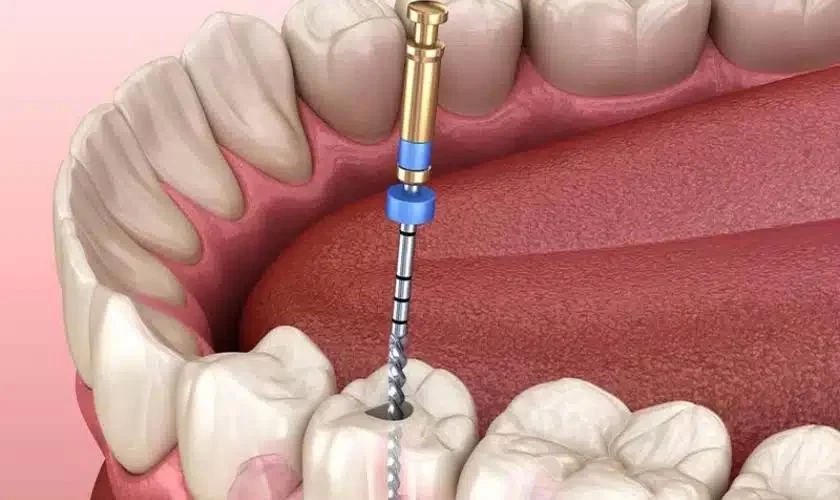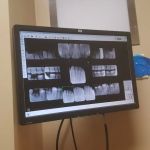
What is a Root Canal and Why Might You Need One?
A root canal is a dental procedure that removes infected or damaged tissue from inside the tooth. This procedure is often necessary when the pulp, the soft tissue inside your tooth, becomes inflamed or infected due to deep decay, trauma, or repeated dental procedures. Though the thought of a root canal can seem intimidating, the procedure is common and generally effective in saving teeth that would otherwise need to be extracted.
The Importance of Preparing for a Root Canal
Preparation plays a crucial role in ensuring a smooth and stress-free root canal experience. The more you understand about the process, the more comfortable and confident you will feel. Proper preparation helps reduce anxiety, speeds up the recovery process, and ensures that the procedure is as efficient as possible. So, how can you prepare for a root canal procedure?
Step-by-Step Guide to Preparing for a Root Canal
Here’s a detailed guide to help you get ready for your root canal:
- 1. Consult with Your Dentist or Endodontist – Before scheduling the root canal procedure, you’ll meet with your dentist or endodontist (a dentist who specializes in root canals). During this consultation, your dentist will assess your condition, take X-rays, and explain the process in detail. This is the time to ask any questions about the procedure, pain management, and aftercare.
- 2. Understand the Procedure – It’s essential to have a clear understanding of what will happen during the root canal. The dentist will remove the infected pulp, clean and shape the root canals, and then fill them to prevent future infection. In some cases, you may need a follow-up visit to place a crown over the treated tooth.
- 3. Arrange for Transportation – While a root canal is typically performed under local anesthesia, it’s wise to arrange for someone to drive you home after the procedure. The numbing effect may linger for a few hours, making it difficult for you to drive or handle certain tasks.
- 4. Avoid Eating Before the Procedure – If your root canal is scheduled for the morning, avoid eating a heavy meal beforehand. However, it’s recommended to have a light meal to avoid feeling too hungry or faint during the procedure. Your dentist will advise you on whether you should eat before your appointment.
- 5. Take Any Prescribed Medication – Your dentist may prescribe antibiotics before the procedure if you have an active infection. Be sure to follow the instructions carefully and take the medication as directed to help reduce the risk of complications during the procedure.
- 6. Dress Comfortably – You’ll be in the dental chair for an extended period, so it’s important to wear loose, comfortable clothing. Avoid tight collars or clothing that may be uncomfortable during the procedure.
- 7. Prepare for Sedation Options – If you’re anxious about the procedure, talk to your dentist about sedation options. Some people opt for nitrous oxide (laughing gas) or oral sedation to help them relax during the procedure. Discuss these options with your dentist ahead of time.
What to Expect During the Root Canal Procedure
On the day of the procedure, you can expect the following steps to occur:
- Anesthesia: Your dentist will numb the area around the affected tooth with a local anesthetic to ensure you don’t feel pain during the procedure. You may feel some pressure, but the area should be completely numb.
- Accessing the Tooth: The dentist will create a small opening in the crown of your tooth to access the infected pulp. If necessary, they may also remove any infected tissue from the root canals.
- Cleaning and Shaping: The dentist will clean the infected area and shape the root canals to prepare them for filling.
- Sealing the Tooth: Once the root canals are cleaned, your dentist will fill them with a special material to seal the space and prevent future infections.
- Temporary Filling: After the root canal, a temporary filling may be placed in the tooth until a permanent filling or crown is added during a follow-up visit.
How to Manage Pain After a Root Canal
While the root canal procedure itself is generally not painful, you may experience some discomfort afterward as the anesthesia wears off. Here are some tips to manage pain and ensure a smooth recovery:
- 1. Over-the-Counter Pain Relief: Your dentist will likely recommend over-the-counter pain relievers such as ibuprofen or acetaminophen to manage mild discomfort. Follow the instructions on the medication label for proper dosage.
- 2. Avoid Hard or Sticky Foods: For the first few days after the procedure, avoid eating hard, sticky, or chewy foods that could aggravate the treated tooth.
- 3. Keep the Area Clean: Continue to brush and floss your teeth, but be gentle around the treated tooth. Keeping the area clean helps reduce the risk of infection and promotes healing.
- 4. Follow-Up Appointments: After the procedure, you may need a follow-up appointment to place a permanent crown on the treated tooth. This is an essential part of the process, as the crown helps protect the tooth from further damage.
A Real-Life Example: Sarah’s Root Canal Experience
Sarah, a 38-year-old mother of two, was nervous about undergoing a root canal. She had heard horror stories from friends, and the thought of the procedure made her uneasy. However, her dentist explained the steps thoroughly, and she realized that the procedure wasn’t as bad as she thought.
On the day of her appointment, Sarah made sure to follow the prep steps: she arranged for her husband to drive her, took the prescribed antibiotics, and avoided eating before her procedure. When she arrived, her dentist made her feel at ease by explaining each step as it happened. The procedure went smoothly, and Sarah experienced only mild discomfort afterward. Within a few days, she was back to her normal routine with no lingering pain.
Common Questions About Root Canal Preparation
Here are some common questions patients have when preparing for a root canal:
- Is a root canal painful? Most patients report feeling little to no pain during the procedure, thanks to local anesthesia. Mild discomfort or sensitivity may occur afterward but can typically be managed with over-the-counter pain relievers.
- How long does a root canal take? The procedure usually takes between 60 and 90 minutes, depending on the complexity of the case.
- Can I return to work after a root canal? Many people feel well enough to return to work or school the same day, though it’s best to avoid strenuous activity for the first 24 hours.
With proper preparation, a root canal procedure can be a smooth and relatively painless experience. By understanding what to expect and following your dentist's instructions, you can ensure that your treatment goes as smoothly as possible and that you can get back to enjoying a healthy smile.







 Sky Dental Group2.0 (54 review)
Sky Dental Group2.0 (54 review) Dr. Daniel S. Fife, DDS4.0 (31 review)
Dr. Daniel S. Fife, DDS4.0 (31 review) Wirth Dental, Duane L. Wirth DDS, David L. Wirth DDS5.0 (39 review)
Wirth Dental, Duane L. Wirth DDS, David L. Wirth DDS5.0 (39 review) Apache Dental Center4.0 (760 review)
Apache Dental Center4.0 (760 review) West Coast Dental of South Gate3.0 (495 review)
West Coast Dental of South Gate3.0 (495 review) Hillside Family Dentistry4.0 (108 review)
Hillside Family Dentistry4.0 (108 review) The Importance of Oral Health Education During Pregnancy for a Healthy Pregnancy
The Importance of Oral Health Education During Pregnancy for a Healthy Pregnancy Best Tips for Brushing Your Teeth Properly for Healthy Gums: Essential Techniques for Oral Health
Best Tips for Brushing Your Teeth Properly for Healthy Gums: Essential Techniques for Oral Health Why Skipping Dental Checkups Can Lead to Bigger Oral Health Problems
Why Skipping Dental Checkups Can Lead to Bigger Oral Health Problems Advantages of Porcelain Dental Restorations
Advantages of Porcelain Dental Restorations How Can Diabetes Cause Tooth and Gum Problems? Preventing and Managing Oral Health Issues
How Can Diabetes Cause Tooth and Gum Problems? Preventing and Managing Oral Health Issues Healthy Habits for Promoting Good Oral Health and Hygiene: Tips for a Healthy Smile
Healthy Habits for Promoting Good Oral Health and Hygiene: Tips for a Healthy Smile